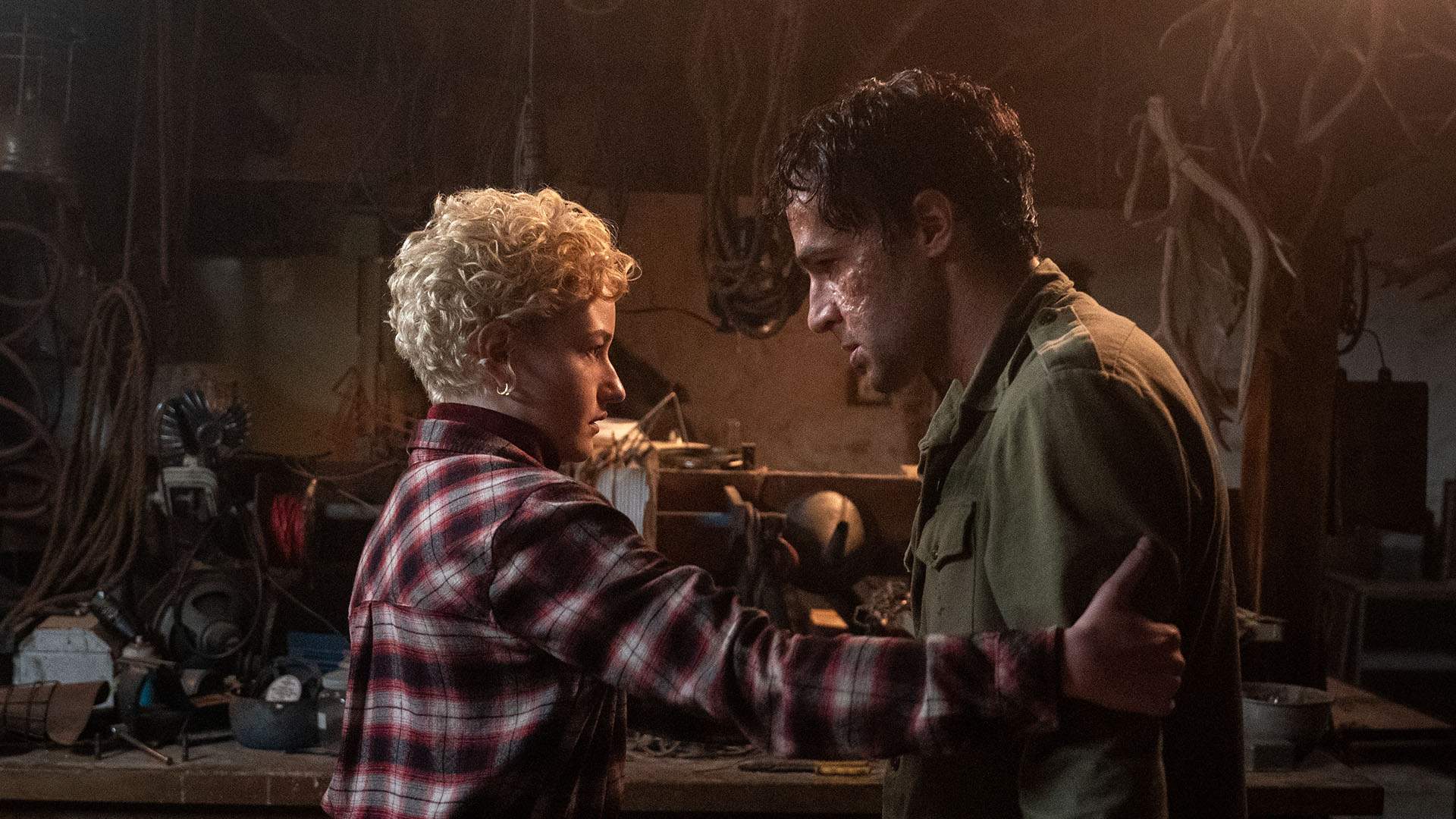Reimagining Classic Horror, Reflecting Reality and Scaring Up Resonant Emotion: Julia Garner and Leigh Whannell Chat 'Wolf Man'
What keeps drawing Garner to on-screen tension and unease — and Whannell to modernising iconic movie monsters? We found out.
Before Wolf Man let out any howls on-screen, it went into production with a roaringly great idea: Leigh Whannell, fresh from his 2020 hit The Invisible Man, again taking on one of horror cinema's iconic monsters. But this update of 1941 classic The Wolf Man almost didn't happen, at least not like this. In the past decade, rumours first circulated that Dwayne Johnson (Red One) was set to bay at the moon, then a reimagining with Ryan Gosling (The Fall Guy) was simmering — the latter of which Whannell was linked to, then dropped out with Blue Valentine and The Place Beyond the Pines director Derek Cianfrance set to step in instead, then returned to but with Christopher Abbott (Poor Things) starring.
Initially, Whannell declined the Wolf Man opportunity. Why did he change his mind? "I think it was hitting upon my way into the character," he tells Concrete Playground. "They were very smart in their inception of me — they said 'well, just as an exercise, what would you do? How would you approach this character if you were to do it — not saying you are, but what if you were?'. And so I started thinking about it, and once I hit upon this idea of perspective and using the camera to shift perspective, that's when I was hooked. Once I have an idea that is keeping me awake at night and I can't stop thinking about it, it's almost like you have to make that film to get that idea out of your system. If something's obsessing you, then you've got to exorcise it. You've got to get it out. And that was it."
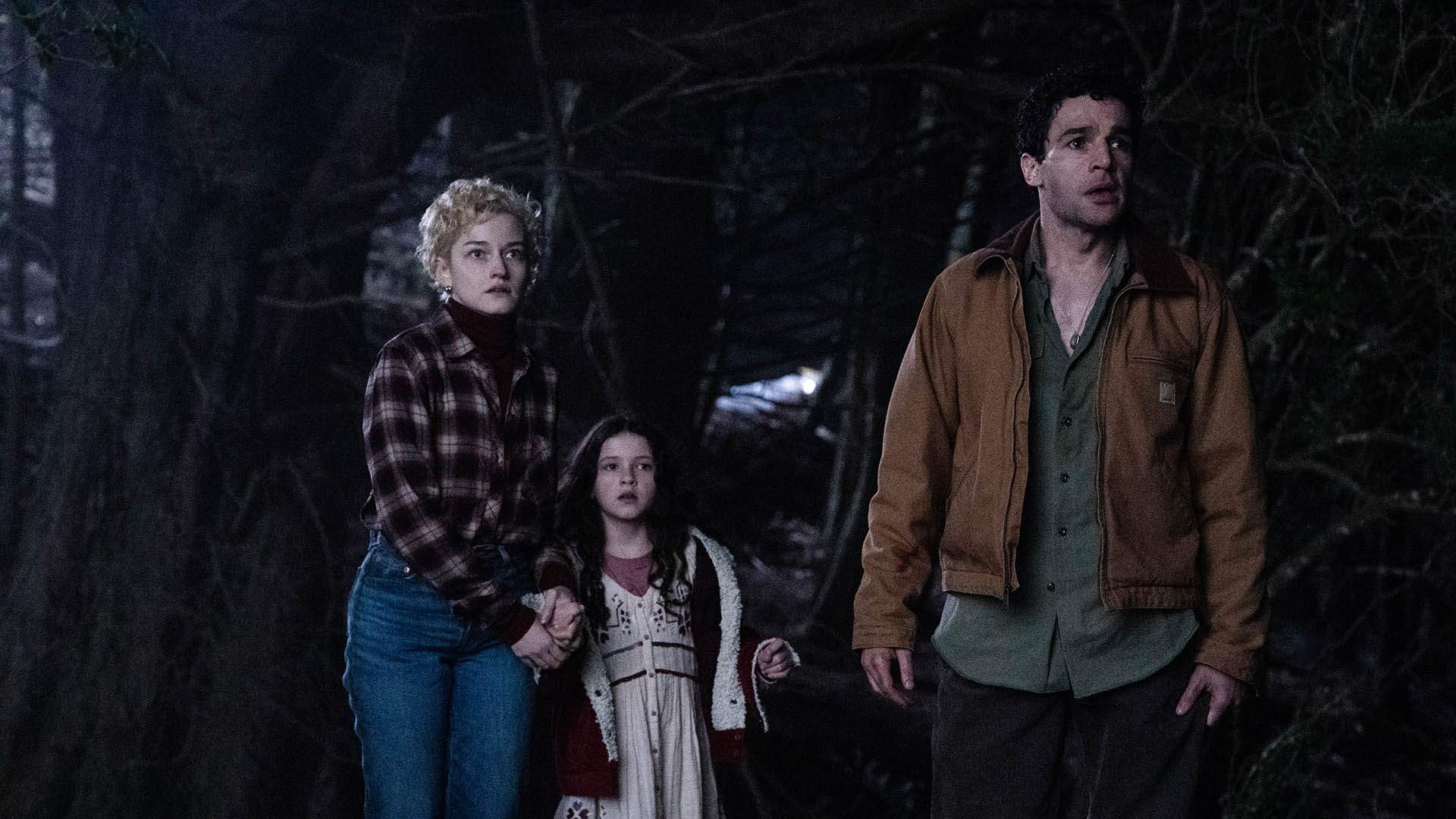
Co-written by Whannell with his wife Corbett Tuck — an alum of the Whannell-co-created Insidious franchise as an actor, including featuring in his directorial debut Insidious: Chapter 3 — this Wolf Man delivers what it promises, of course. It's a werewolf film, with Abbott's character of Blake Lovell destined for an unwanted transformation. But as anyone that saw The Invisible Man and experienced how it found an inventive way into its well-known horror figure knows, and everyone who watched Whannell's body-horror Upgrade before that and spotted its riff on Frankenstein as well, the Australian filmmaker isn't interested in straightforward or obvious do-overs. He's modernising movie monsters and grounding them in resonant emotion. As The Invisible Man's lead, Elisabeth Moss (The Veil) wasn't in the titular role but rather played the transparent force's target, aka his ex-girlfriend, for instance, in a picture about domestic abuse, coercive control and gaslighting.
This time, while again examining the loss of agency as he keeps doing cross his career, Whannell spins an exploration of trauma, plus the transformation and grief that it can spark — and of a marriage and a family tested by it, and also of the breakdown of communication in a relationship, and the mourning over losing someone slowly before your very eyes — around cinema's werewolf archetype. It's a hauntingly effective way in, and a shrewd and engaging one. Again, feeling the impact on those closest to the movie's namesake is essential. As Blake's wife Charlotte, enter Ozark Emmy-winner Julia Garner, starring with Abbott for the third time following Martha Marcy May Marlene (the feature debut for both) and an episode of Girls. She's also currently on a four-film streak where tension and unease is the prevailing mood. The latter and discomfort were equally crucial in her turn in quickly bingeable, ripped-from-the-headlines streaming series Inventing Anna.
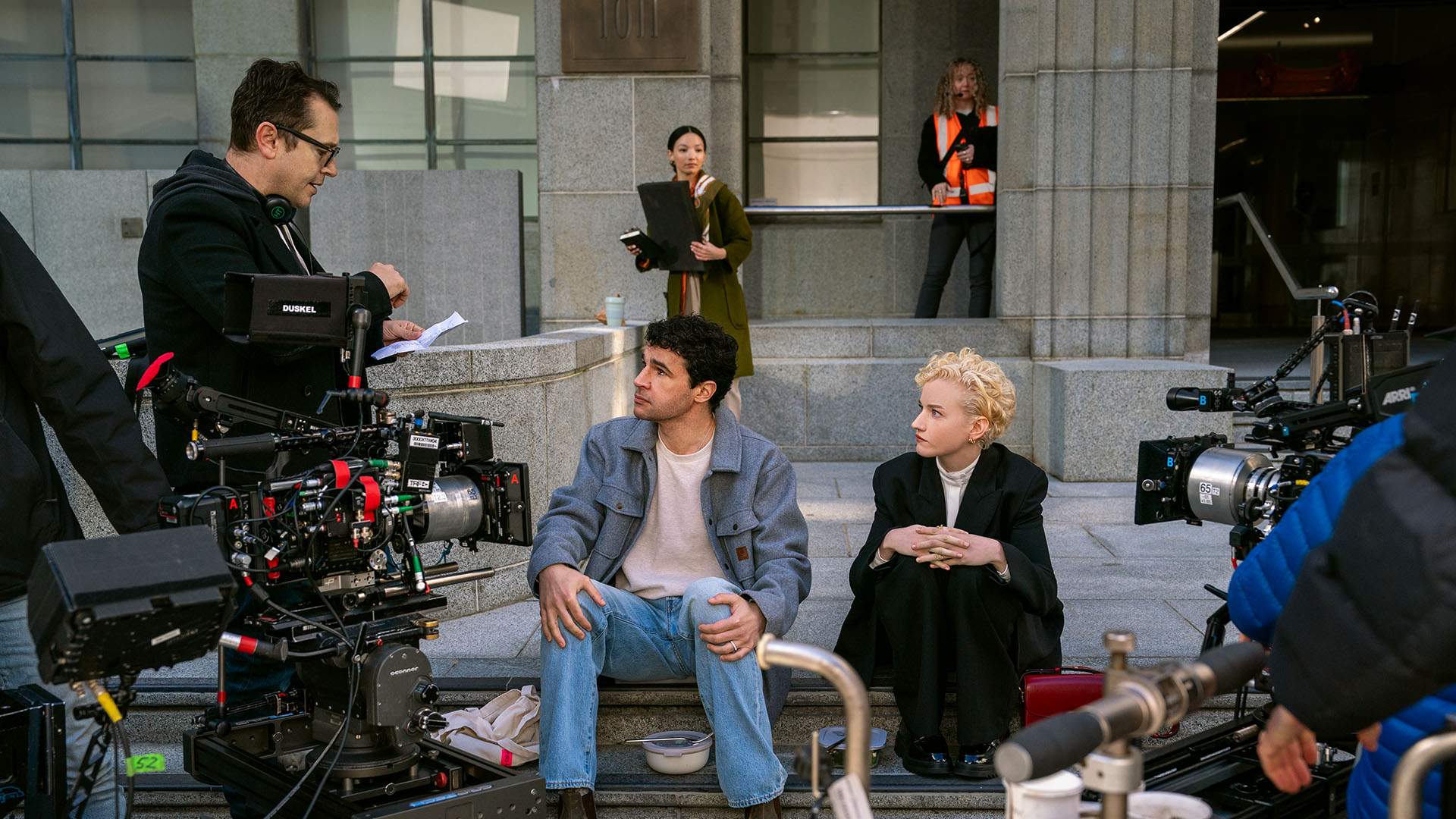
"There's not just one family member," Garner advises, explaining why it was so pivotal to her that what Charlotte goes through is just as key to the narrative as what Blake faces. Wolf Man uproots the couple and their eight-year-old daughter Ginger (Matilda Firth, Coma) from their San Francisco existence — where Charlotte is an investigative journalist and loving it, Blake is a doting dad but adrift in his surroundings otherwise, and strain already stresses the pair's marriage. While it takes some convincing, soon they're in rural Oregon, where Blake grew up and where the film opens. As a child (feature first-timer Zac Chandler) in the 90s in an area where a strange virus has been linked to wildlife, his survivalist father (Sam Jaeger, The Handmaid's Tale) isolated the family from the rest of the world. Blake has now inherited the property, sparking his comeback decades later, as well as the use of impressive practical effects by Whannell's team to make good on the movie's moniker.
First coming to fame at home as the film critic on beloved 90s Saturday-morning TV show Recovery on the ABC, and with acting credits in The Matrix Reloaded, Death Sentence, Dying Breed, The Mule and more to his name, Whannell did indeed wish when he was starting out to be where he is now. His path that also spans bringing both the Saw and Insidious franchises, two of the biggest sagas in horror of the 21st century, to audiences with fellow Australian James Wan (Aquaman and the Lost Kingdom) — and starring in them. But he steadfastly appreciates his journey and, as he notes, "that luck plays a massive part in film-industry success". While he's been doing big things as Aussie filmmaker, Garner keeps working with Down Under talents. See also: Kitty Green's The Assistant and The Royal Hotel, plus Rosemary's Baby prequel Apartment 7A from Relic's Natalie Erika James.
We chatted with Whannell and Garner about their routes to Wolf Man, how the film continues trends in each of their careers, casting and the movie's fresh interpretation of the Wolf Man story. The figure is no stranger to the screen, after all, with 2010's The Wolfman also going the remake route, and focusing on werewolves at the heart of films as varied as 1935's Werewolf of London; the 80s trio of An American Werewolf in London, The Howling and Teen Wolf; and Wolf in the 90s (and others). Part of our interview, too: Whannell's recurring themes, Garner's reunion with Abbott and more.

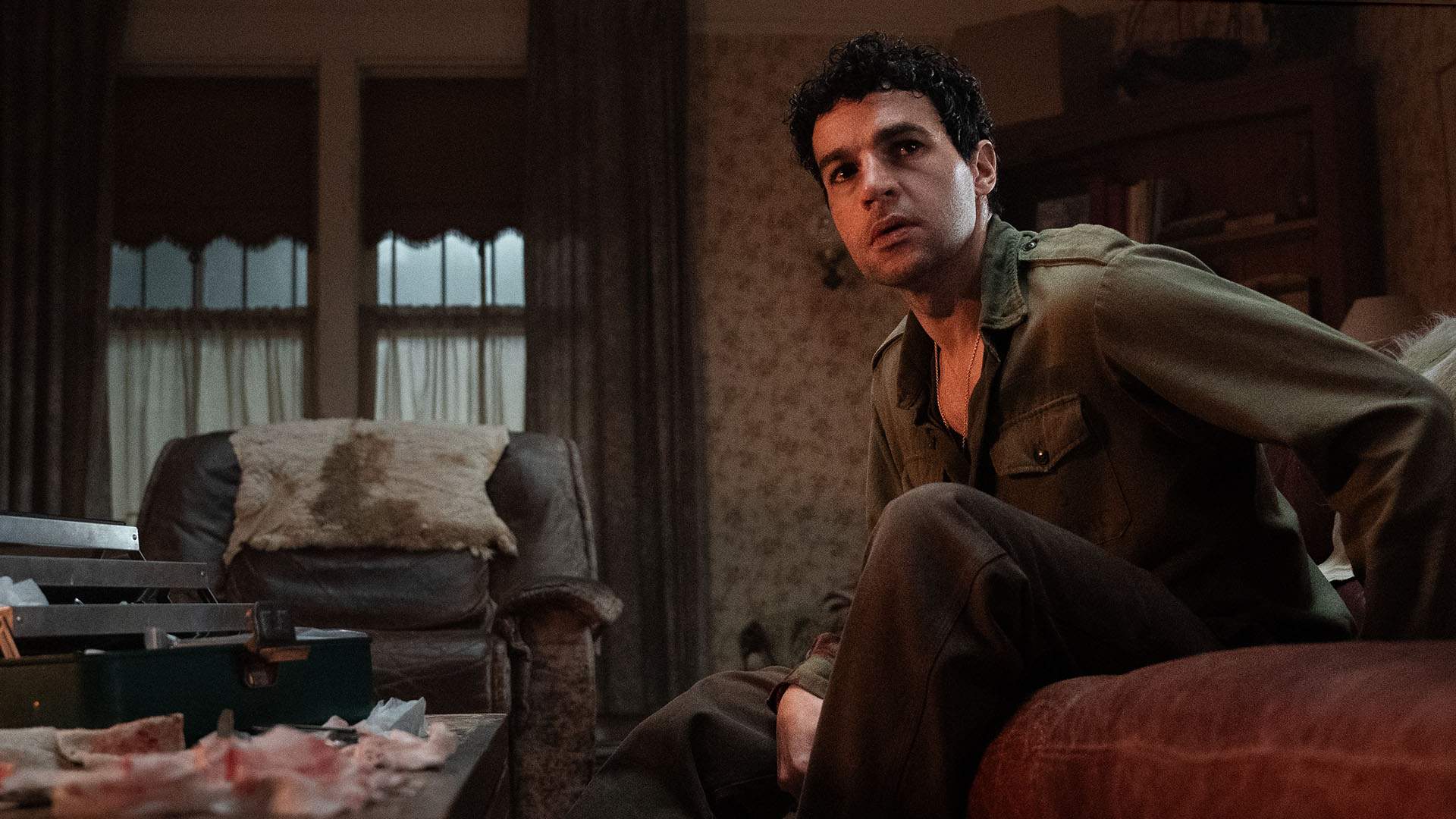
On Whether Whannell Ever Dreamed That He'd Be Modernising Iconic Movie Monsters Back When He Was a Film Critic on 90s ABC Series Recovery
Leigh: "I think I did dream. I mean, 'dream' is the right word, because they were very much daydreams. I don't think I took it past the daydreams. Once you start actualising a daydream, where you're drawing up plans and charts, and thinking about the chess moves that you're going to make to get there — I was just wishing for it.
So I think that the fact that I actually am doing it is a literal dream come true, but it's also surprising to me. Because I think if I hadn't met the right people at the right time — and it's a very particular path I had to walk. One wrong move and this all goes in a different direction.

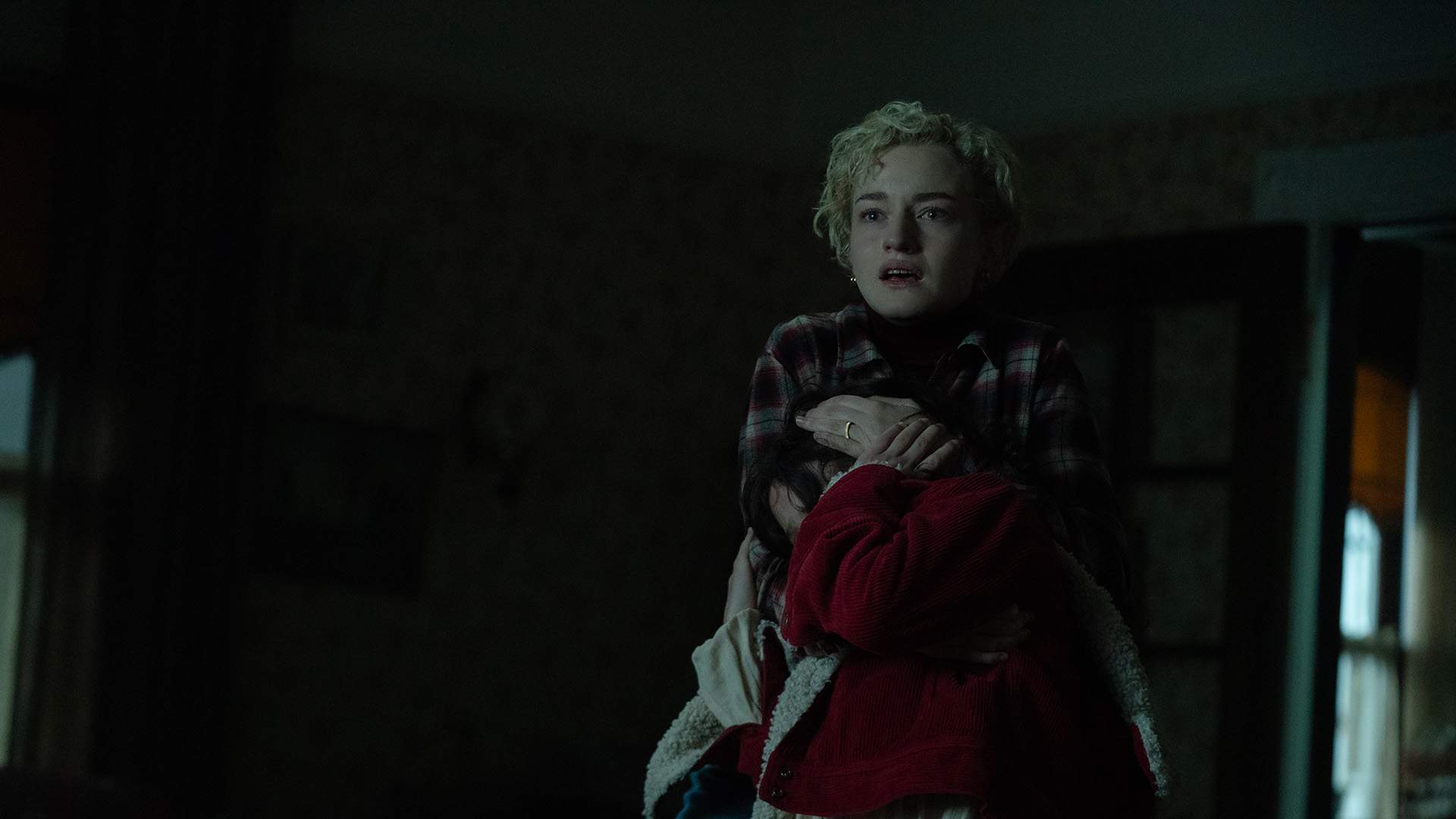
On Garner Engaging with a New Way Into a Horror Classic in Wolf Man Immediately After Rosemary's Baby Prequel Apartment 7A — and If That's a Daunting Task
Julia: "With this one, I feel like a lot of it is just that's what people want to see now. I feel like most of the movies that come out in this day and age are horror in a way, so I think that's what's popular now. And I'm just an actor that that needs to work — what can I say? No. But that's what's popular.
The thing with Wolf Man that's interesting is that I actually didn't watch any — I've watched the previous Wolf Mans before, even before I was attached to this movie, but I didn't rewatch any of the previous Wolf Mans because I always felt like it felt very different and it wasn't connected to the previous Wolf Mans at all. So I wasn't going to take that as reference, movie reference.
I found other places that were more beneficial for this Wolf Man than the previous Wolf Mans."

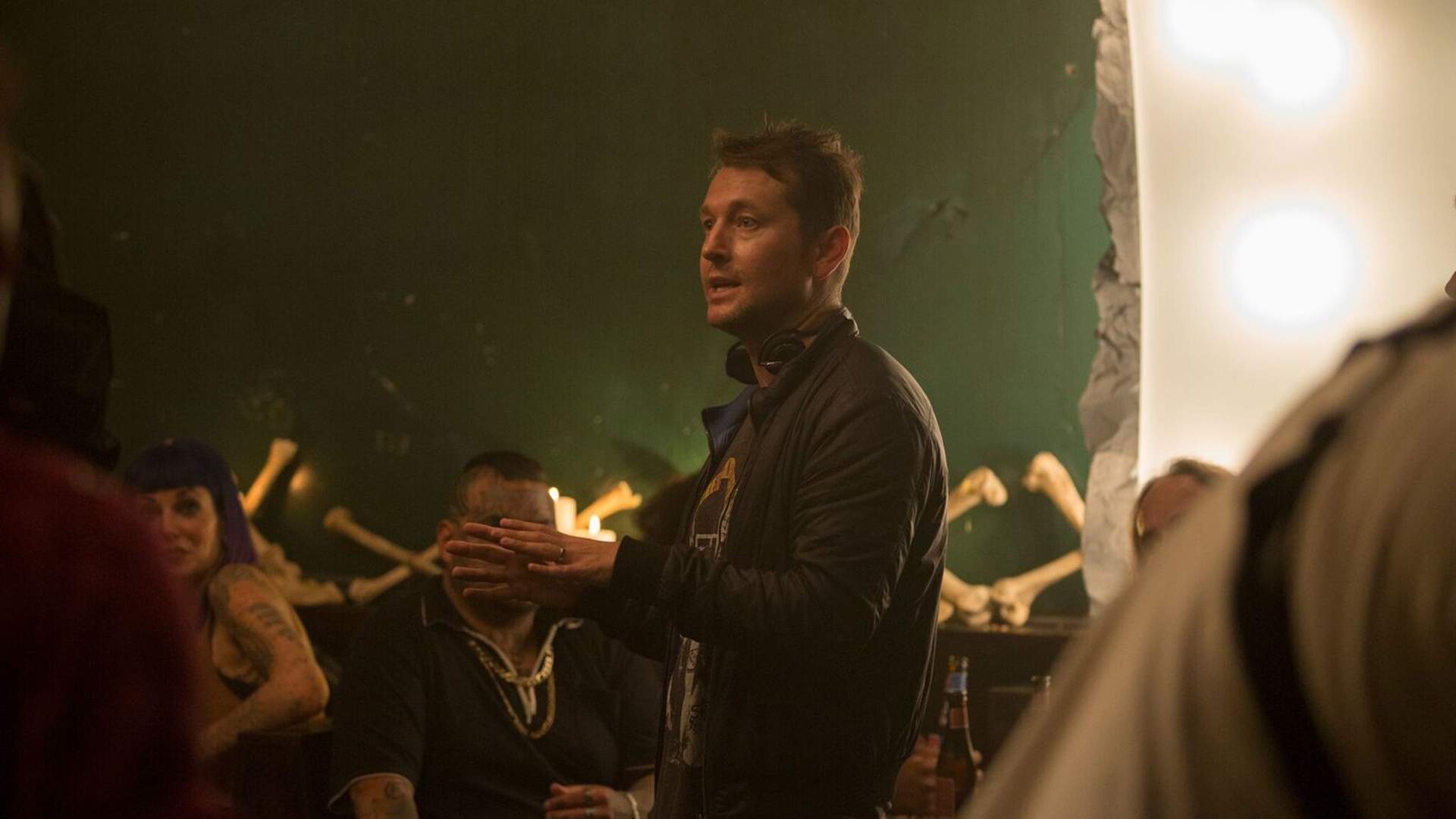
On What Motivates Whannell to Make New Versions of All-Time Horror Greats
Leigh: "I think they're iconic characters that people know. They're known around the world. The Wolf Man, Invisible Man, Dracula, Frankenstein — these characters are truly global, and people have a firm idea in their head. You say 'Frankenstein' to somebody and they have a picture in their head, probably the classic Boris Karloff image of the square green head with the bolts in the neck. There's that, but having said that, they're not locked in. People have done many things with these different characters.
You can take the Wolf Man and plug it into a teen comedy. They did with Michael J Fox in the 80s. You can take a werewolf and plug it into a children's film. My kids watch animated movies with the Wolf Man running around, and Adam Sandler's doing the voice of Dracula. They're very malleable. They're so entrenched in pop culture that they don't even have to sit in one lane anymore.
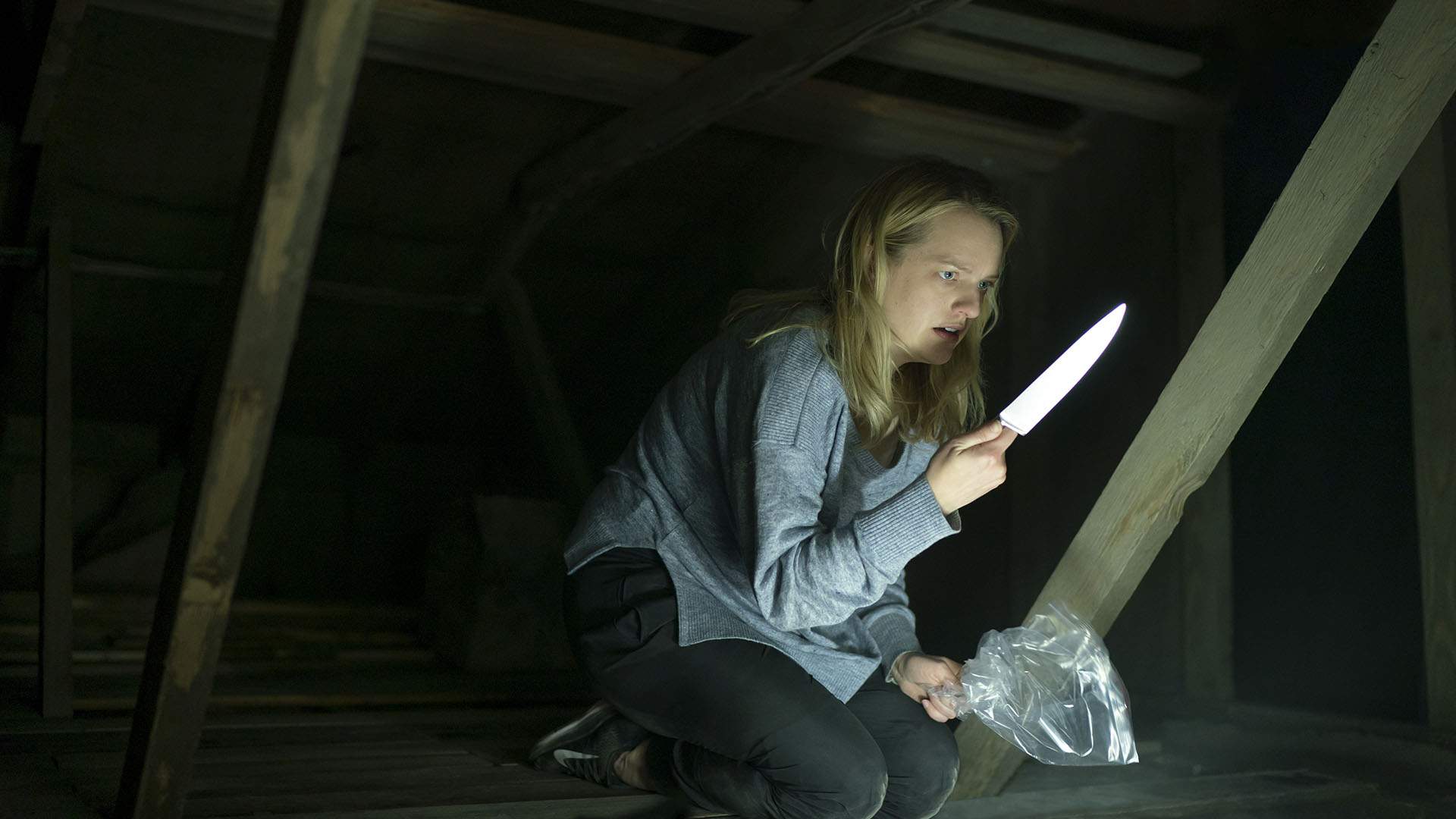
The Invisible Man
That's what's exciting to me, because getting people into movie theatres these days is difficult. If you can take a really known character like that and create essentially an original film inside of it — like with The Invisible Man, I was essentially creating my own story. I wasn't adapting a novel. I was creating this character of Cecilia, her inner world.
So it's a way of having my cake and eating it. I get to write an original movie that's based on an iconic character, and the fact that it's so well-known means that studio has a way in. They can sell it to people. It's an equation you have to think about, I think, when making movies these days, because getting people into theatres is tough."

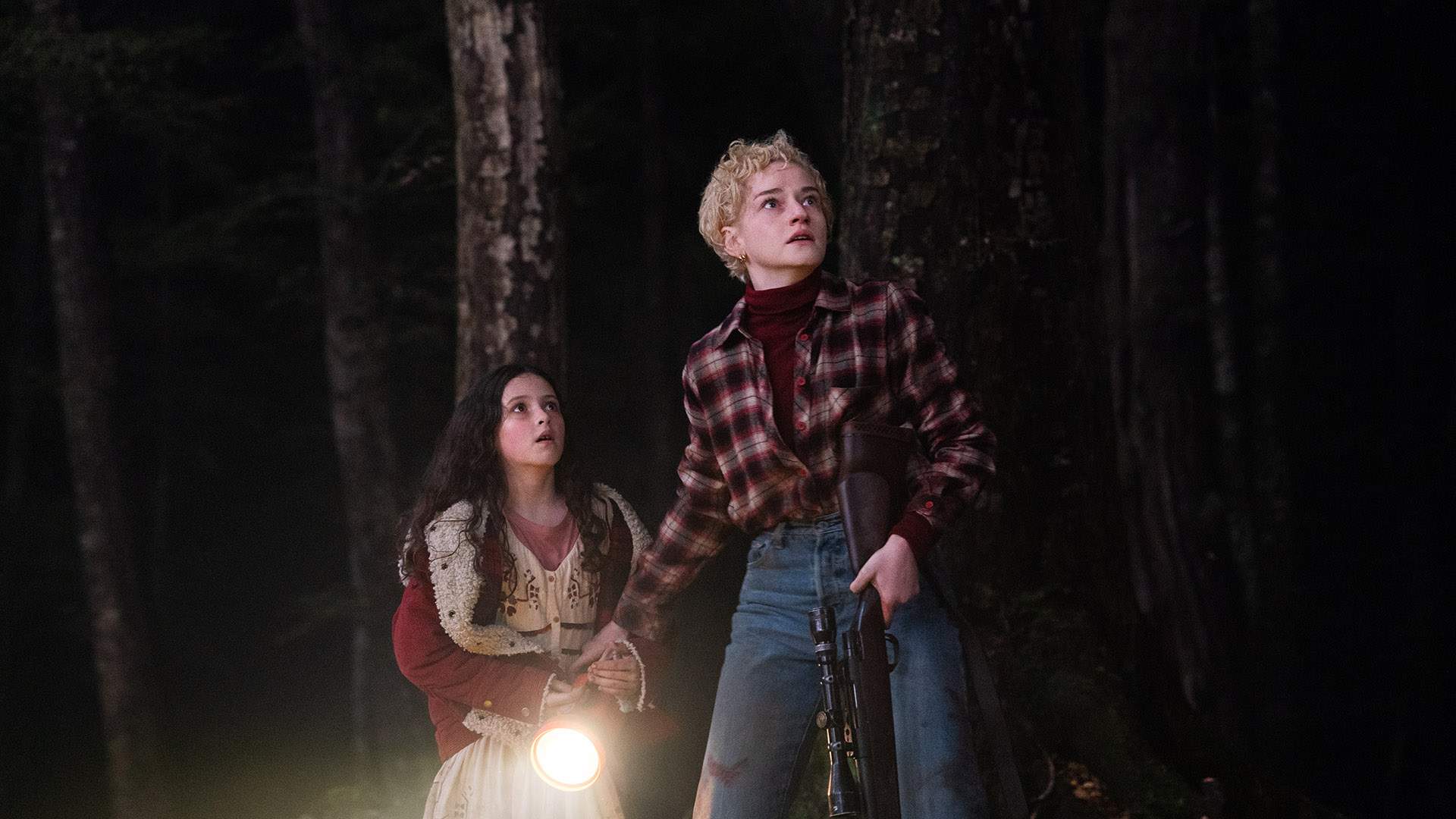
On Why Whannell's Approach to Horror Monsters Appealed to Garner, and What She Was Excited to Dig Into
Julia: "That it felt very real and very grounded. I thought that was a super-interesting combination, with the supernatural element of a monster movie, like Wolf Man. So, that contradiction — well, any contradiction always interests me.
I think playing a mother, but not only playing a mother, playing a working mother — a mother that is struggling with what her identity is. I interviewed a lot of working mothers separately, and they all had similar responses, in a way. And the pressure of being a woman in this in this day and age — there was different pressure being a woman in the past, but there's now this different pressure of this day and age, and they all had similar responses.
But then to add on top, something that was also just interesting was the sense of acting, how I approached it, too, was the seven stages of grief taking place in one night. And I think that was a really interesting challenge as an actor, because playing anything that takes place in one day is very challenging, let alone having the stages of grief — that's very challenging as well."

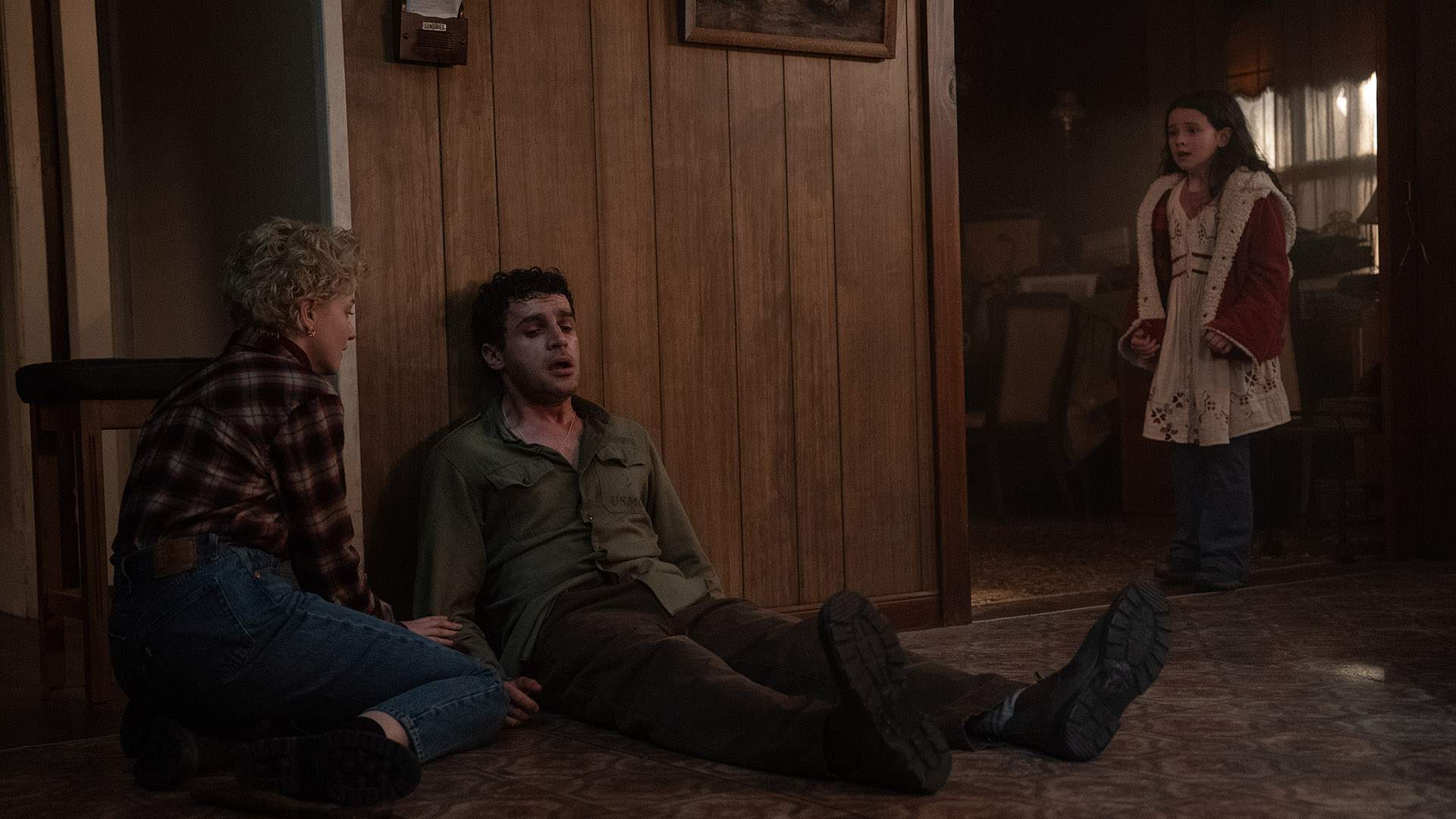
On Wolf Man Combining Its Monster-Movie Setup with Musing on a Marriage Breakdown, a Family Strained by It, and Grief and Loss
Leigh: "I think it is a balancing act, but it's one of the things I love about screenwriting is calibrating it. You're shaping something. You're making this sculpture. And to me, there's something very musical about writing a film, because there is a rhythm to it — and it's a rhythm that you just feel, you kind of feel it in your bones. You're just like 'okay, I need a chord change here. It's time for a big moment, and then I'll pull back'.
I love doing that. I love being the god of my own little world. So much of life is out of our control — but when you write a screenplay, you create these people and you can treat them badly, you can treat them well, you can give them victories, you can rip the rug out from underneath them. There's something very cathartic about that, about controlling the fate of these imaginary people.
And so I do enjoy that calibration. I do enjoy deciding — and so I'll give them a moment of connection, and I'll give them an emotional moment, and then I'll be vicious to them. You really are putting these characters through the wringer and you just have to use yourself as the barometer of 'when do I get emotional and when do I write things up a little bit?'.

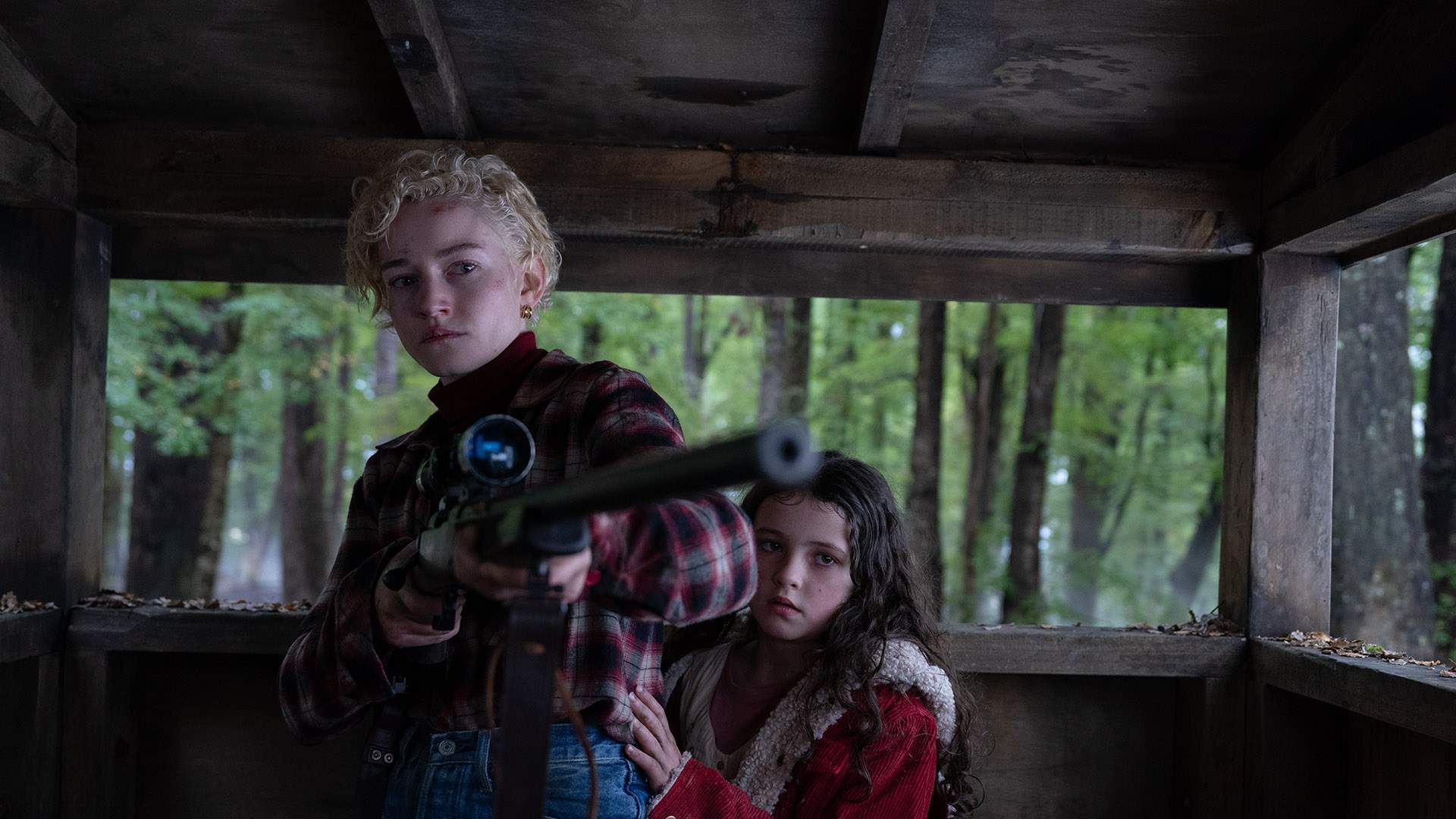
On Elements of Horror, Tension, Unease and Discomfort Simmering in Garner's Last Four Films in a Row — Including The Royal Hotel and The Assistant
Julia: "I think it's funny. I look at those two movies, I don't look at them as horror movies so much, Royal and The Assistant. I look at them more as movies that have a lot of tension, and movies that have more of a grey area — and that's what feels like horror, a grey area is sometimes scarier because it feels more real.
But this movie is different from anything that I've done, because this is actually the most of an action movie from out of anything that I've done, so that was one of the things that I also wanted to do.
There was a lot of physical just running and all the things that I'm doing this movie. It was like an action horror movie it felt like, this film."

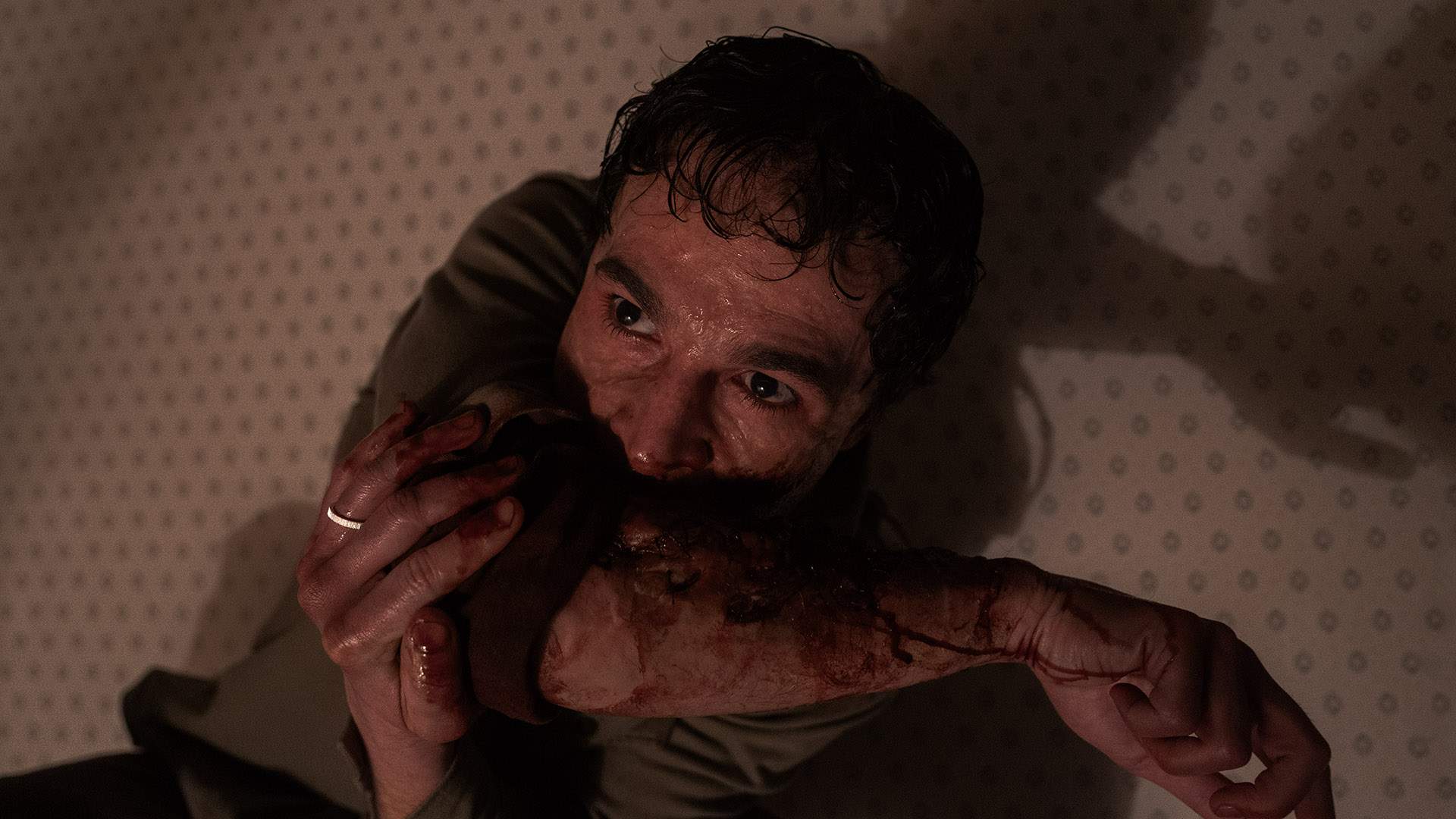
On Why Whannell Keeps Telling On-Screen Tales About the Loss of Control and Agency
Leigh: "That's interesting. A lot of times I treat interviews like free therapy, where I'm discovering in real time what the hell it is I do with my life. The old saying 'a fish cannot describe water' applies — I'm so inside of my films and so close to them that I'm not always the best person to tell you what they're about.
Someone like you, who's coming in with a fresh set of eyes, you have a better Google Maps-view of this thing that I've done, and you maybe can pick up things. So I'm surprised a lot of times. Hearing you say that, I'm like 'okay' — and thinking about it, I'm like 'yeah, you're right'.
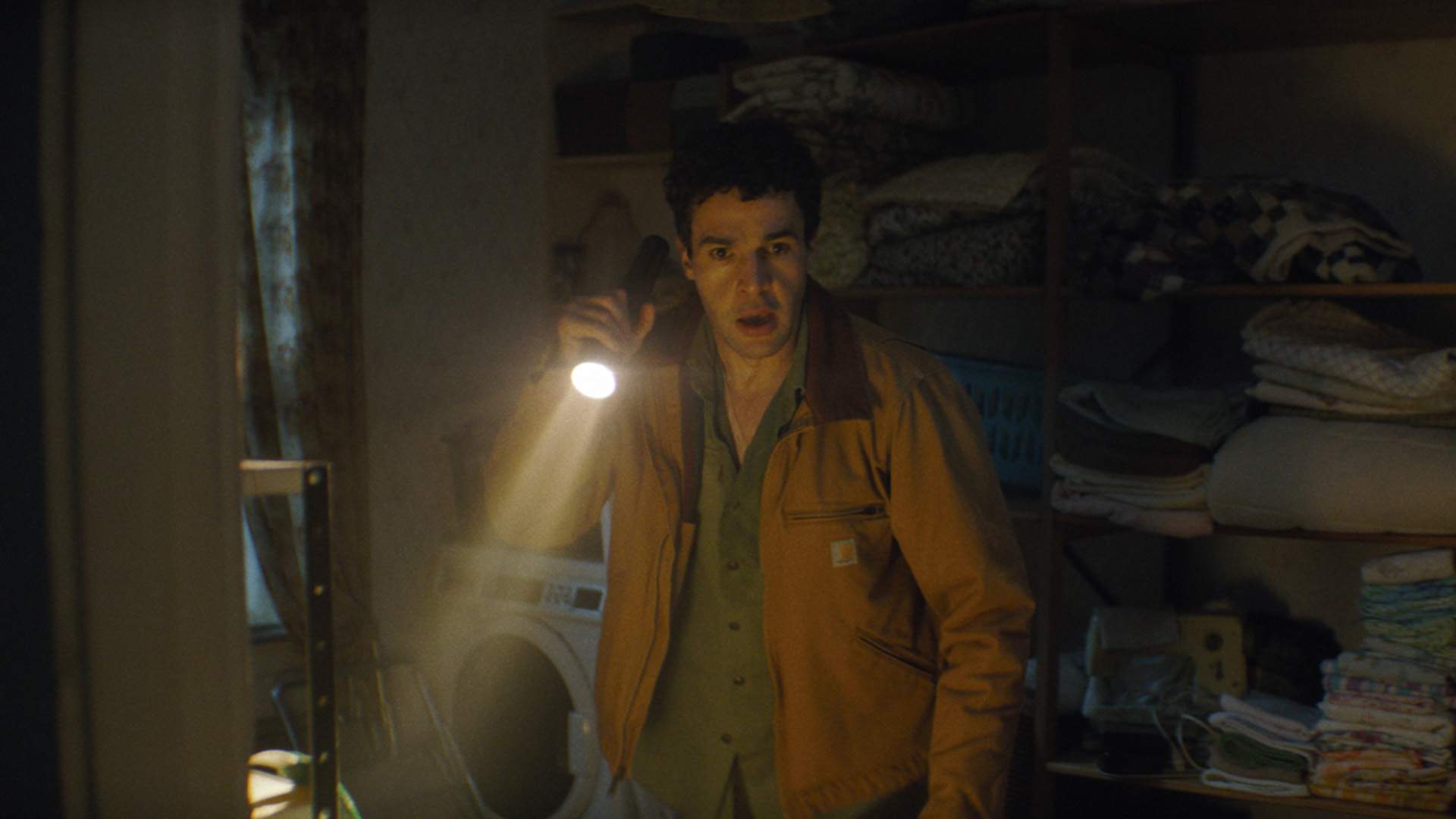
There is this throughline through Upgrade and The Invisible Man and Wolf Man, and a lot of stuff I've done. I think that — just unpacking this in real-time here for you — I think that feeling like being out of control is something I'm afraid of in my own life. I'm somebody who wants to know what the plan is. I'm trying to keep a lid on the chaos of life. Some people are better at going with the flow. I definitely need that and I've always been like that. So maybe it's a fear of mine that's coming out.
But also I think it just makes for good drama when you have someone who is being stripped of their agency and who they are. That's just great drama, especially when the person doesn't deserve it, when they're a sympathetic character.
They say the key to screenwriting is to put your main character up a tree and throw rocks at them. I guess I enjoy torturing these fictional people because that makes for a good screenplay."

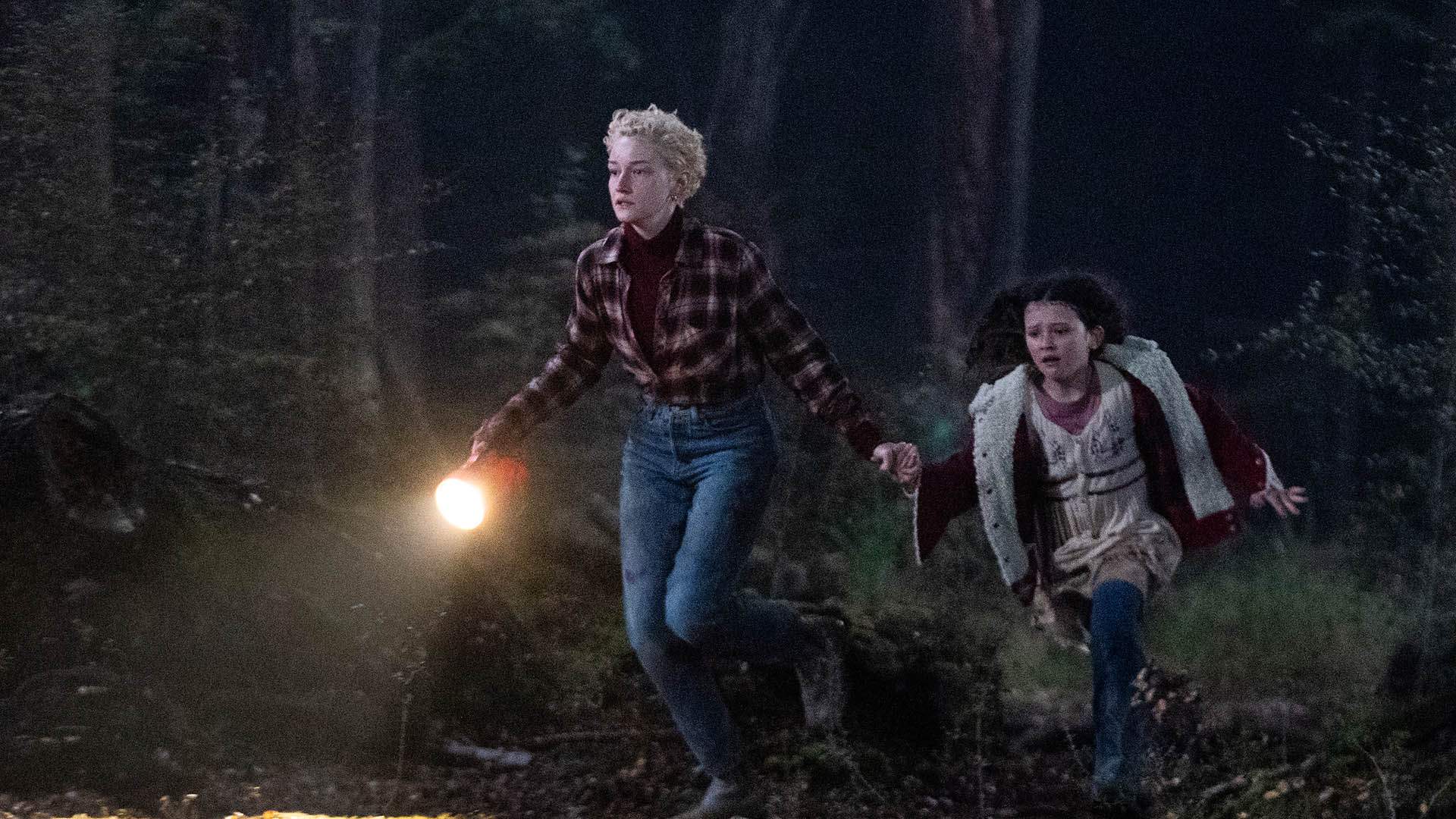
On the Importance of Key Surroundings in Garner's Recent Films, Such as Wolf Man's Oregon Farm Setting
Julia: "Surroundings in general, I think, is — and this is actually not on the actor, but I think if a director is not using the surroundings, that is not good for the film because it's a character on its own.
So you're not getting to know another character in the film."

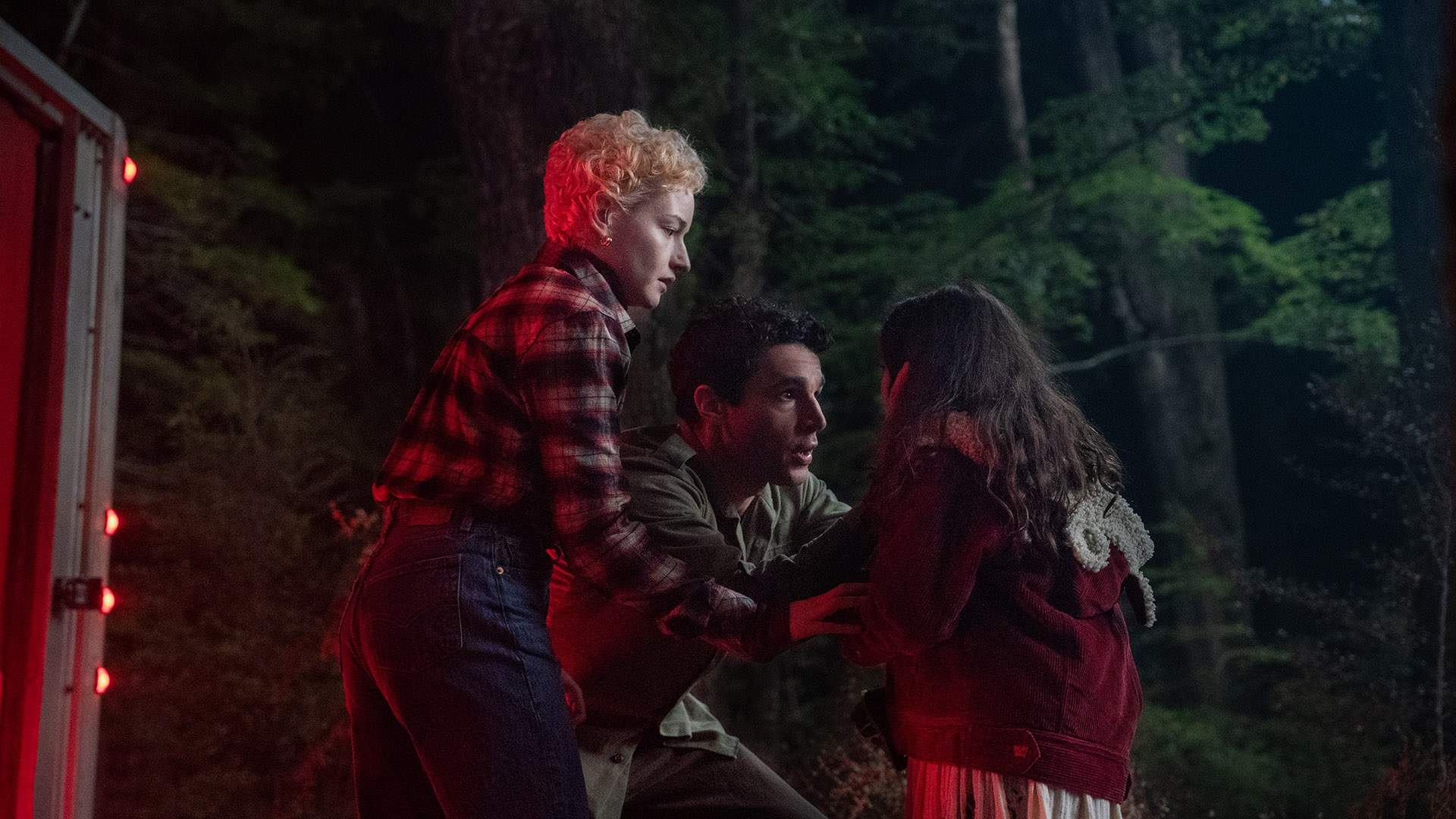
On How Whannell Knew That Abbott and Garner Were His Wolf Man Leads
Leigh: "I knew both of their work and knew how talented they both were. With Chris, the final straw was seeing him do a play in New York where he was just so great. And he was just ball of energy on stage, just raging — and then I went and saw him backstage and he's just chilling out with a glass of wine. And I was like 'okay, this guy, this guy is amazing that he could do that and then this'. I could see that he could switch it on and off.
And with Julia, I already knew what she was capable of. So a lot of times with actors, unless you're a Christopher Nolan or Steven Spielberg, you really are just fishing for a yes. You don't always get that. I've written plenty of impassioned letters to different actors trying to sell them on a film I'm writing and gotten the rejection. Even directors can get rejected. Actors face a lot of rejection, but directors do too.
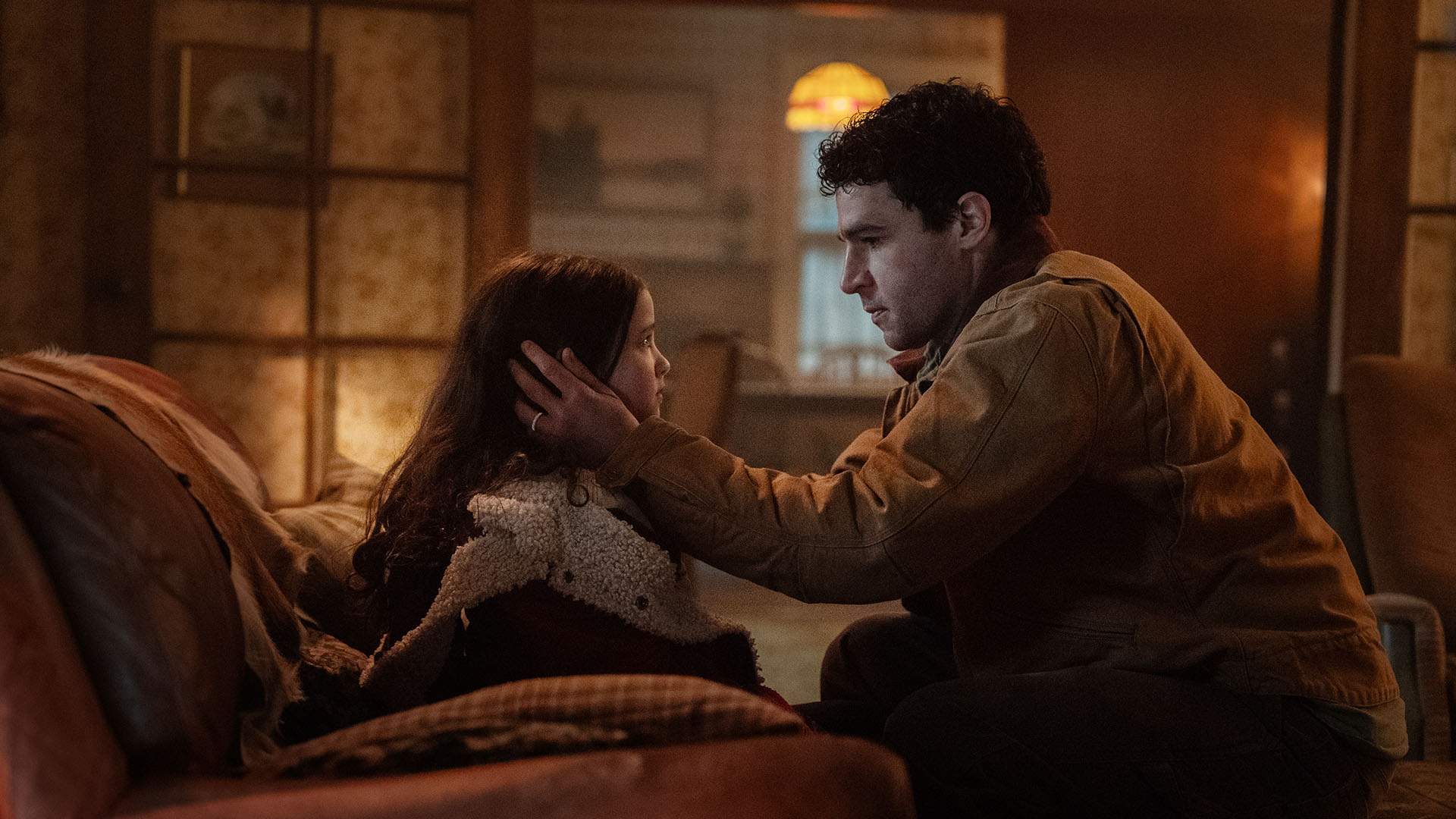
So I'm just so happy that these particular two people responded. I was waiting for Julia. I was like 'uhhh, I haven't heard anything for a couple of days'. I'm reading into it. 'I guess she's going to pass'. And then she texted me a little wolf emoji. And I was like 'all right'.
It was just one of those happy times when two people you know can do it both said yes."

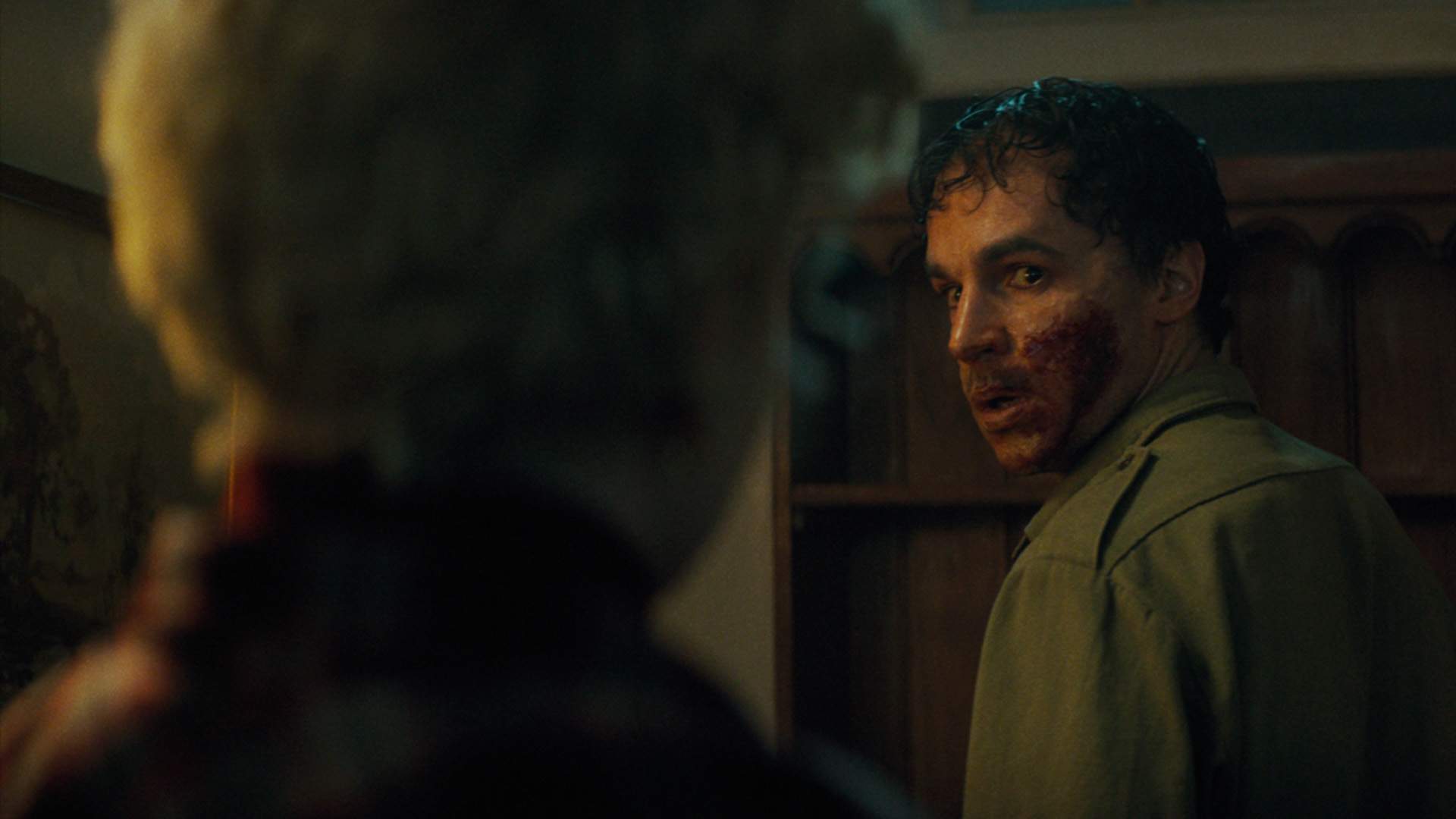
On Garner Working with Christopher Abbott for the Third Time — and How They Drew Energy From Each Other in Their Wolf Man Performances
Julia: Well, it definitely didn't feel like the first time I met him. So that was easy. And Chris is such a great actor, so I was very excited to attach myself to this. Chris met me when I was 16 years old, which is crazy — there is history.
Just being real, I think is so important. Being real and being open, because if you have just open behaviour, then that makes your scene partner hopefully more open. So that openness is contagious, and then you get a real response.

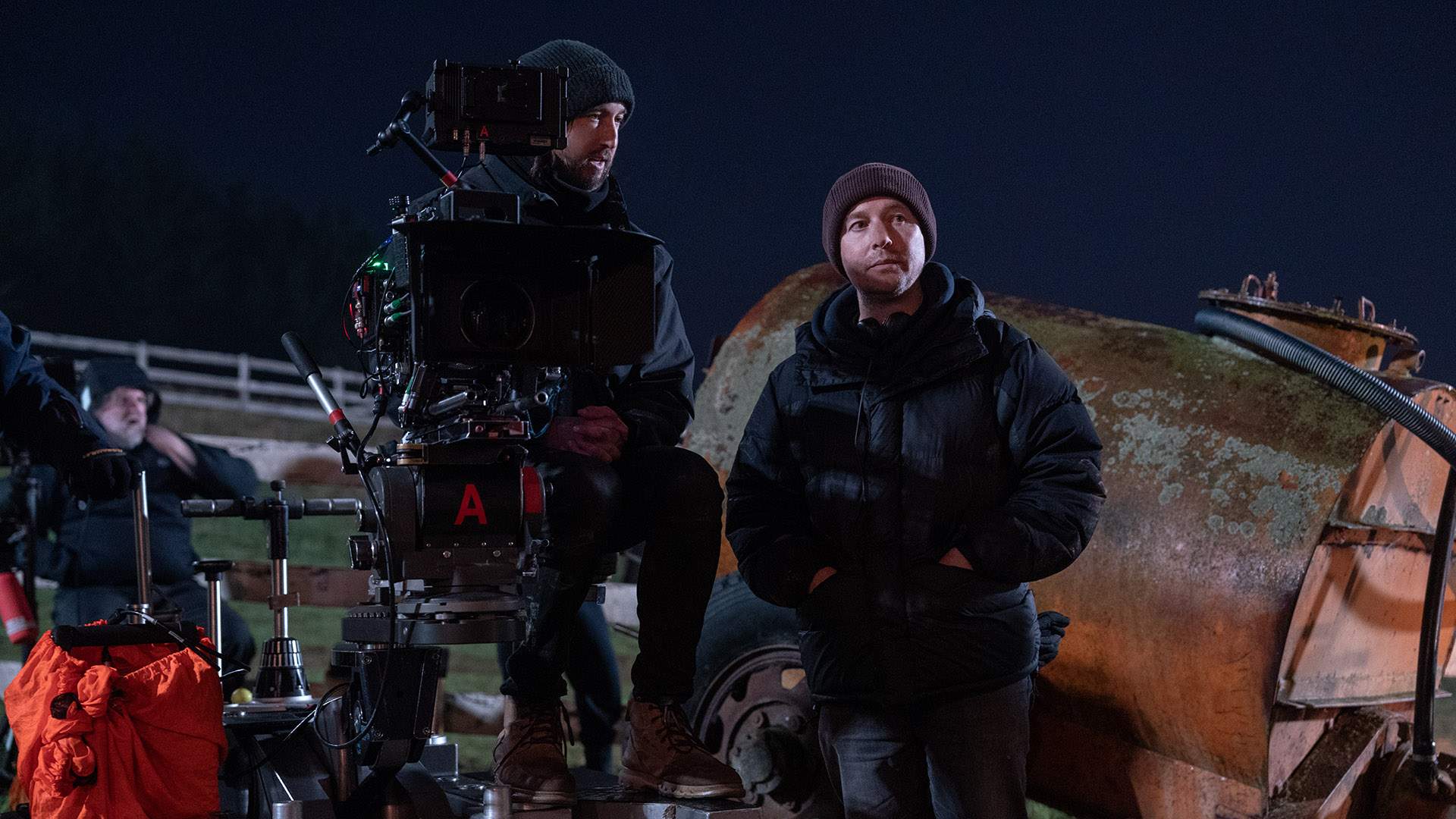
On What Whannell Makes of His Journey From Australian TV to Co-Creating the Saw and Insidious Franchise, Then Upgrade, The Invisible Man and Wolf Man
Leigh: "A lot of it's been surprising. So much of the movie industry is gambling, and you the old saying 'nobody knows anything' applies, I think. Certainly in Hollywood, where you've got these big studios spending lots of money and it's a profit-driven industry. Unlike Australia, it's not a a government-supported art form. It's a deluge of capitalism, and you stand or fall on that box office. And there are detours you can take, i.e. spend less — well, then you're not on the hook as much; the less money you spend, the less you're expected to make.
So anyone who manages to scrape out a career, it's kind of a surprise — because when James Wan and I did that first Saw movie, we never expected that people would actually go to see it, and never expected to turn into this huge franchise. And it was a total bonus prize. So it's surprising more than anything.
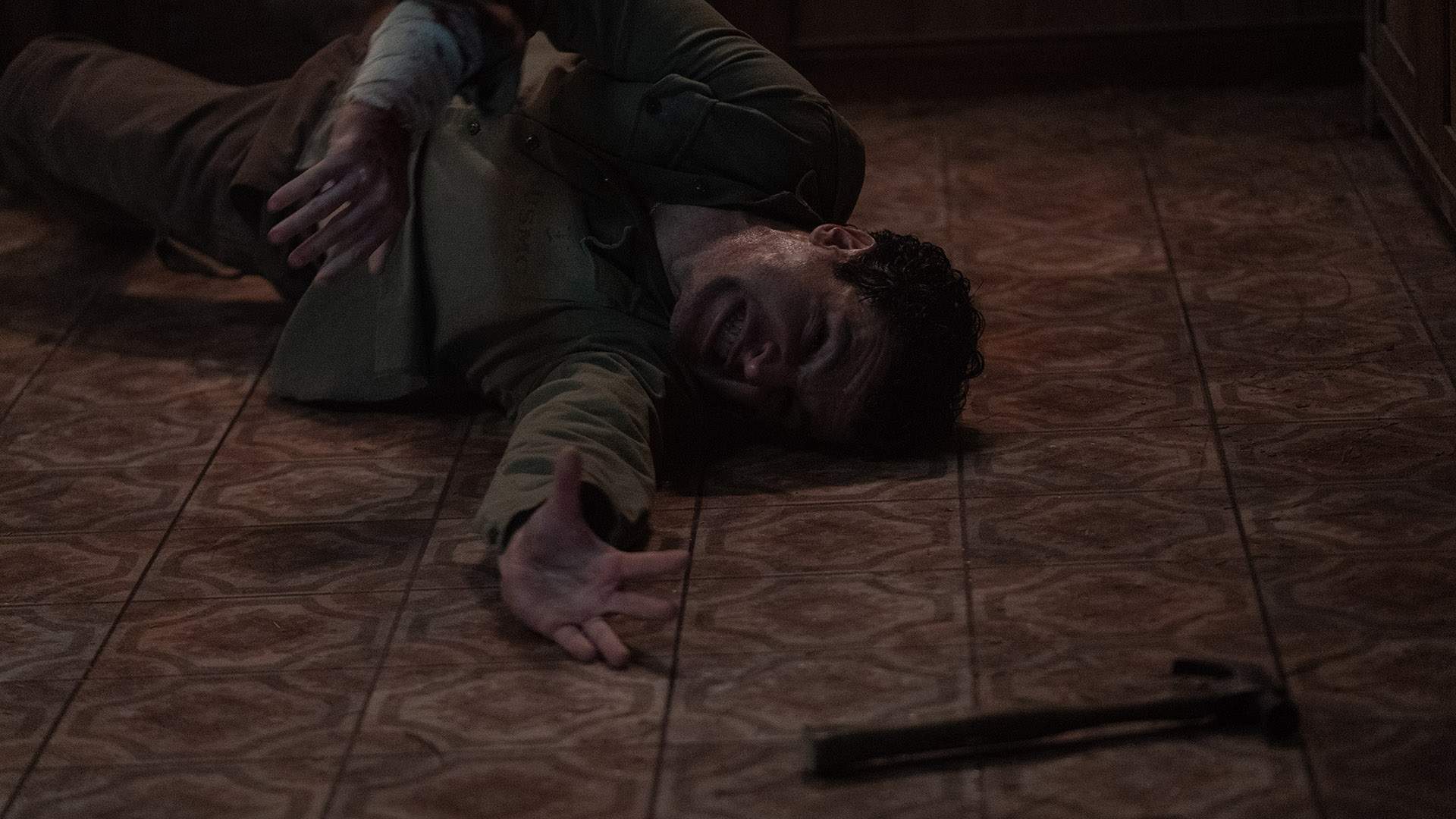
And I think when luck is involved, it can keep you humble — or it should. If you start believing that you're there because of destiny, that you were chosen by the hands of fate, that's when you're in trouble. That's when your ego's talking. But if you have a healthy awareness that luck plays a massive part in film-industry success, it does keep you god-fearing. It keeps you humble in the face of that luck.
Here I am again talking to you, I'm rolling the dice again. I've made a film. I'm hoping it does well. But I have no idea how it's going to connect with audiences. That part isn't up to me. There's nothing I can do or say to make this film connect with people. It either will or it won't. So yeah, I'm just very well-aware of that."

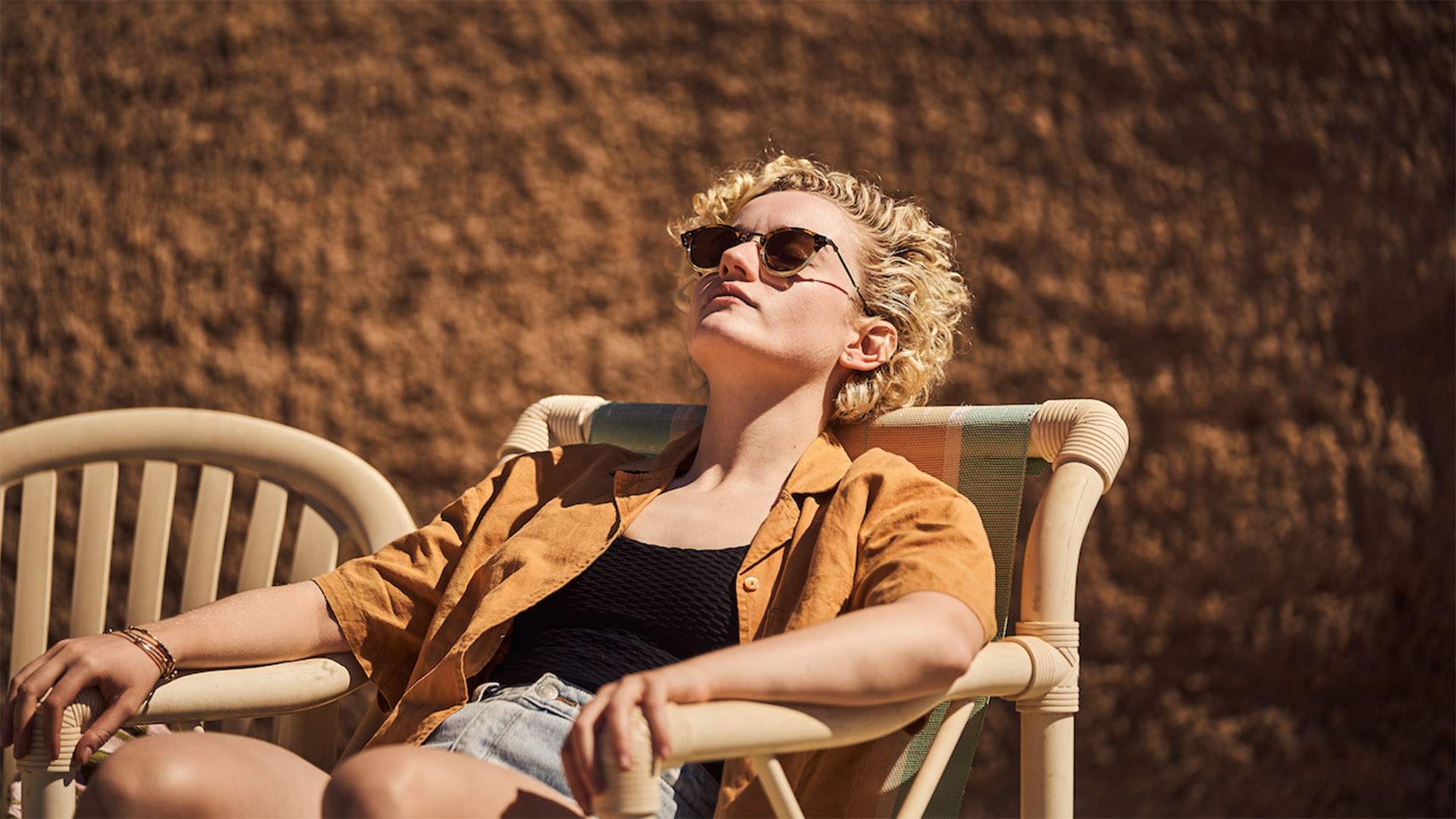
The Royal Hotel
On How Garner's Run of Working with Australian Directors Came to Be
Julia: "I don't know. Well, Kitty is one of my closest friends, so I will do anything with her. I literally was just like 'I need to call her'.
I love Australians. I think you guys are awesome. And you guys have great, great directors and art coming out of there, so I'm always intrigued by what an Australian has to say."

Wolf Man opened in cinemas Down Under on Thursday, January 16, 2025.
Leigh Whannell will chat about the film at the 2025 AACTA Festival, which runs from Wednesday, February 5–Sunday, February 9, 2025 at HOTA, Home of the Arts, 135 Bundall Road, Surfers Paradise, Gold Coast.
